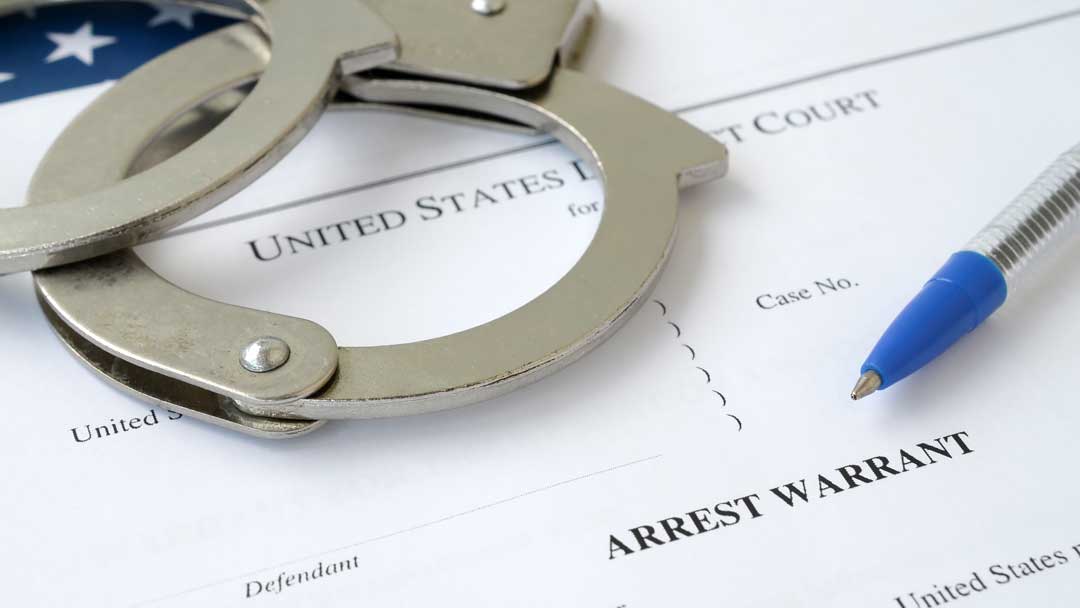2 min read
Avoid These Mistakes When Posting Bail: Everything You Need to Know
If you find yourself in the unfortunate position of needing to post bail, there are some things you should avoid doing. By following these...
4 min read
Rachel North : Sep 5, 2024 11:48:26 AM
While the fifth amendment does provide protection to a witness who could accidentally incriminate themselves by answering certain types of questions, it does not guarantee that a person can stay completely quiet. When an arrest is made, the person being charged is required to provide certain information such as name and personal details, but they are not obligated to answer any “incriminating“ questions.
Incriminating questions fall under two different categories:
Guiding Information – Information that could lead to evidence of criminal activity. For example, the name of someone who could testify that the witness committed arson.
Direct Criminal Evidence – For example, if the witness declares “I lit the building on fire.”
Regardless of who is charged in the case and whatever the eventual outcome may be, bail bonds in California are still available at Frank Calabretta’s Bail House to all witnesses and/or defendants involved in the case. While there is no legal way for the prosecution to force a witness to reveal any incriminating evidence, a prosecutor can offer what’s called immunity in exchange for testimony from the witness.
There are two unique types of immunity; one that is used at both the state and federal levels, and one that is omitted by the federal system.
Transactional immunity is never offered by the federal system, but it is the broadest type of immunity at the state level, offering a wide scope of protection from any current or future prosecution that is mentioned during the testimony of the immunized witness.
Transactional immunity also goes by several other names such as “blanket “immunity and “total “immunity. Transactional immunity provides the most broad protection for a witness, but it only provides protection for criminal activities that are related to something specifically discussed during the immunized testimony. It does not provide protection to the witness for criminal activities that are unrelated to something in the testimony.
For example, if a witness and a defendant commit arson, the prosecution may grant the witness transactional immunity as a bargain for testifying against the defendant and admitting his participation in the fire during the proceedings of the defendant’s trial. If, during his testimony, the witness explains that while the fire was in progress, they stole items from the store before it burned up, the act of theft is related to the crime discussed in the immunized testimony.
No, they cannot. Because they received the promise of transactional immunity, and they did indeed testify at the trial, their transactional immunity protects them.
No, they cannot. Because the act of theft was mentioned during the immunized testimony and was related to the event discussed during the testimony, the witness is also protected.
After the witness testifies, if the prosecution happens to learn from another independent source, such as video footage or a second witness, that the witness was involved in a string of past robberies, unrelated to the arson charge, the witness can be prosecuted because those robberies were unrelated to the current crime.
The types of immunity that are more commonly used by both federal prosecutors and those at the state level are “use” and “derivative use” immunity. These are not as broad in the protection they offer as transactional immunity, but they still offer protection to the witness while testifying about anything mentioned that is related to the crime. “Use” simply means that the prosecution is prevented from using the witness’s own statements against them.
“Derivative” use is similar, but it refers to the prosecution being prohibited from using any evidence derived from those statements against said witness. And with Use and Derivative Use immunity, the prosecution still has an opportunity to gather independent evidence to use later against the witness. If during the testimony, the witness indicates that they committed a crime and the prosecution is able to gather independent evidence from a distinct, independent source, then the witness can be prosecuted for that crime.
Yes, in this case they can, but only if they are able to gather independent evidence that the witness lit the store on fire. The evidence in the witness’ own testimony would not be enough because they are protected by immunity. If there is an additional witness who saw the defendant and the witness light in the building on fire, then they can prosecute.
Let’s say a store manager was president when the witness stole items from the store at the start of the fire. The manager is later questioned and testifies that he saw this theft occur. In that case, there is proof of the theft from an independent source (the manager), so the prosecution can indeed use the manager’s testimony to get the witness on a count of theft.
Because immunity is granted as a deal structured between the witness and the prosecution, it can be revoked if the witness does not hold up his end of the deal. If the witness takes the stand and refuses to testify like they originally promised, the prosecution can ask for a re-trial and retract immunity.
If you have been asked to testify in a case or believe you would be a helpful witness, it’s a great idea to talk with an experienced criminal defense lawyer to understand how best to protect yourself and your rights during testimony. At Frank Calabretta‘s Bail Bonds, we offer bail bond services to anyone in need, no matter if they have been offered immunity or not.
We have been in business for over 40 years and are proud to serve you and offer bail bonds to the town of Auburn, California and the surrounding areas. If you are looking for bail bonds in California for yourself or your loved ones, contact us today at (530) 823–8340.
We are located at 11410 Atwood Rd. in Auburn California, conveniently right across the street from the Placer County Jail. Someone is always available to talk to you over the phone 24/7 including weekends, and holidays!
Call us today to see how Frank Calabretta’s Bail House can help you with the bail services you need. We offer confidential, fast, and friendly service and our number one goal is to make the process as easy and fast as possible for you during your time of need.

2 min read
If you find yourself in the unfortunate position of needing to post bail, there are some things you should avoid doing. By following these...

2 min read
The thought of getting arrested, having a warrant in your name, or turning yourself in to the court system is not appealing, but working with a...

2 min read
At Frank Calabretta’s Bail House, it is our mission to be of service to our community by providing the best bail bonds and related...